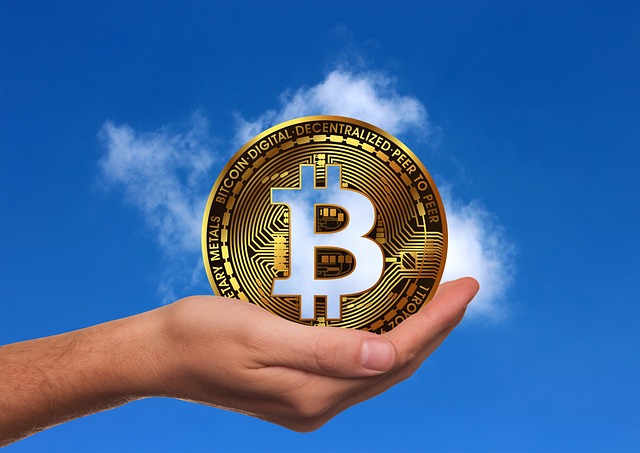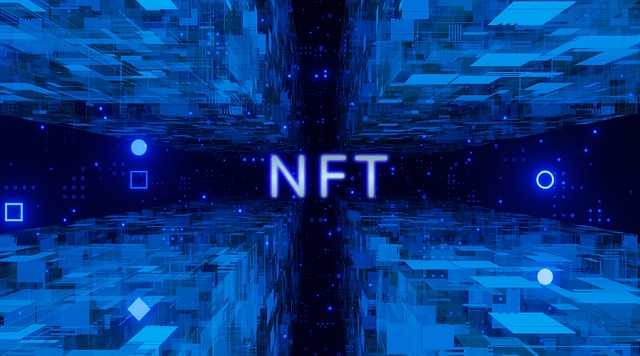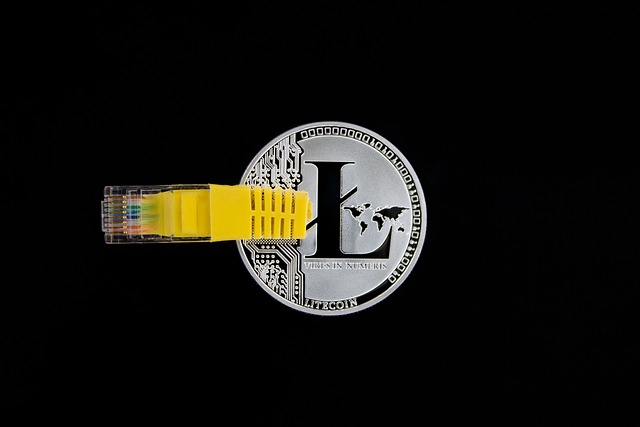Decentralized Finance vs. Traditional Banking Architecture
Decentralized Finance vs. Traditional Banking Architecture

The Evolution of Financial Systems: Exploring the transition from traditional banking to decentralized finance
Financial systems have come a long way since the establishment of traditional banking. With technological advancements and changing consumer demands, the transition towards decentralized finance has gained momentum in recent years. Decentralized finance refers to a system that operates on blockchain technology, allowing for peer-to-peer transactions without the need for intermediaries. This shift has the potential to revolutionize the financial industry by providing greater accessibility, transparency, and efficiency.
One of the key advantages of decentralized finance is its ability to address the issue of financial exclusion. Traditional banking systems often require extensive documentation and collateral, making it difficult for the unbanked and underbanked populations to access financial services. Decentralized finance offers opportunities to these marginalized groups by eliminating the need for intermediaries and providing access to financial products and services directly. This creates a more inclusive and accessible financial ecosystem where individuals can participate in economic activities and improve their financial well-being.
Accessibility and Inclusion: How decentralized finance offers opportunities to the unbanked and underbanked populations
Decentralized finance (DeFi) holds tremendous potential for addressing the financial exclusion faced by unbanked and underbanked populations.

One of the key advantages of decentralized finance is its accessibility. Unlike traditional banks that require individuals to meet various eligibility criteria, DeFi platforms can be accessed by anyone with an internet connection and a digital wallet. This opens up a world of financial opportunities, enabling the unbanked and underbanked populations to send and receive money, save, borrow, invest, and engage in other financial transactions without reliance on intermediaries. By providing a user-friendly and inclusive interface, decentralized finance is empowering individuals who were previously left out of the conventional banking system, ultimately driving financial inclusion on a global scale.
Transparency and Security: Examining the benefits of blockchain technology in ensuring trust and reducing fraud
Blockchain technology has emerged as a powerful tool in ensuring transparency and security in financial systems. By its nature, blockchain provides a decentralized and immutable ledger that records every transaction made. This transparency allows all participants to have access to the same information, making it virtually impossible to manipulate or alter data without the consensus of the network. With transparency at its core, blockchain instills trust among users, allowing them to have a clear view of the entire transaction history. This transparency not only promotes accountability but also reduces the risk of fraud, as any suspicious activity can be easily traced and identified.
In addition to transparency, security is another significant benefit offered by blockchain technology. Traditional financial systems heavily rely on centralized databases that are vulnerable to cyber attacks. The decentralized nature of blockchain, on the other hand, makes it inherently secure. Each transaction is secured through cryptographic methods, making it extremely difficult for hackers to tamper with the data or steal sensitive information. With multiple copies of the blockchain distributed across a network of nodes, the system becomes resilient to attacks, ensuring that data integrity is maintained. This enhanced security not only protects the financial transactions but also safeguards personal and sensitive information, instilling confidence among users in utilizing decentralized finance solutions.
Peer-to-Peer Transactions: Understanding how decentralized finance enables direct transactions between individuals without intermediaries
Decentralized finance (DeFi) has revolutionized the way individuals transact by enabling direct peer-to-peer transactions without the need for intermediaries. Unlike traditional banking systems that rely on centralized authorities such as banks or payment processors, DeFi utilizes blockchain technology to facilitate secure and transparent transactions between individuals. This shift towards peer-to-peer transactions has numerous benefits, including increased accessibility, reduced costs, and greater financial freedom.
One of the key advantages of decentralized finance is the accessibility it offers to individuals who are underserved or unbanked by traditional banking systems. In many parts of the world, people face significant barriers when it comes to accessing financial services and participating in the global economy. DeFi eliminates these barriers by providing a decentralized platform where anyone with an internet connection can engage in financial transactions. By leveraging blockchain technology, DeFi opens up opportunities for individuals to save, invest, borrow, and participate in various financial activities without relying on traditional financial institutions. This newfound accessibility not only empowers individuals but also fosters financial inclusion and economic growth on a global scale.
Smart Contracts and Automation: Exploring the potential of decentralized finance in automating financial processes
Decentralized finance (DeFi) has opened up exciting possibilities for automating financial processes through the use of smart contracts. These self-executing contracts are built on blockchain technology, enabling transactions to be securely and transparently carried out without the need for intermediaries. By eliminating the need for middlemen, smart contracts reduce the time, cost, and complexity associated with traditional financial processes.
One of the key benefits of smart contract automation is its ability to streamline and expedite various financial transactions. For example, decentralized lending platforms utilize smart contracts to automate loan origination, collateral management, and repayment processes. This not only eliminates the need for a physical lender or institution but also allows borrowers and lenders to interact directly with each other, resulting in faster and more efficient lending processes. Similarly, smart contracts can be used to automate insurance claims, ensuring that policyholders are promptly and accurately compensated when specific conditions are met.
Financial Innovation and Experimentation: Highlighting the creativity and flexibility of decentralized finance in developing new financial products and services
Decentralized finance has opened up new avenues for financial innovation and experimentation, allowing for the development of novel products and services that were previously unimaginable. With the flexibility provided by blockchain technology, decentralized finance platforms can create and deploy financial solutions that cater to the specific needs of individuals and businesses. This level of customization has the potential to revolutionize the way we think about traditional banking and financial services.
One area where decentralized finance has particularly excelled is in the creation of decentralized applications (dApps). These applications are built on blockchain platforms and offer unique financial functionalities that were once only possible through traditional financial institutions. For example, decentralized lending platforms enable individuals to lend and borrow funds without the need for intermediaries, allowing for more efficient and seamless transactions. Similarly, decentralized insurance platforms leverage the power of smart contracts to automate claims processing and ensure greater transparency in the insurance industry. The creativity and flexibility of decentralized finance have unleashed a wave of innovation, empowering individuals and democratizing access to financial services.
Regulatory Challenges and Compliance: Discussing the regulatory landscape surrounding decentralized finance and its impact on traditional banking architecture
The regulatory landscape surrounding decentralized finance presents a unique set of challenges and compliance considerations. Unlike traditional banking systems that are heavily regulated by central authorities, decentralized finance operates on a different paradigm, where transactions are conducted directly between individuals through blockchain technology. This poses a fundamental question of how existing regulatory frameworks can be applied to these emerging financial systems.
One of the primary challenges is determining the jurisdictional boundaries for decentralized finance. With transactions happening across borders and without the need for intermediaries, it becomes difficult for regulatory bodies to enforce compliance and ensure consumer protection. Additionally, the decentralized nature of these systems raises concerns about anonymity and potential illicit activities, which further complicates the regulatory landscape. As such, there is a pressing need for regulators to adapt and develop new frameworks that strike a balance between fostering innovation and safeguarding against risks.
Scalability and Efficiency: Analyzing the scalability issues faced by both traditional banking and decentralized finance solutions
Scalability is a crucial factor in the success of any financial system.

Decentralized finance, on the other hand, offers a potential solution to scalability issues. With its distributed architecture and utilization of blockchain technology, decentralized finance can handle a higher volume of transactions without experiencing the same bottlenecks as traditional banking. The ability to scale without relying on a single centralized entity makes decentralized finance more adaptable and flexible to changing demands. However, it is important to note that as decentralized finance gains popularity, its scalability will also face challenges. The need for consensus among network participants and the technical limitations of existing blockchain protocols may hinder its ability to handle large-scale adoption. As the industry matures, addressing these scalability concerns will be crucial in ensuring the long-term viability of decentralized finance.
Risks and Volatility: Investigating the risks associated with decentralized finance and comparing them to traditional banking risks
Decentralized finance (DeFi) has gained significant attention in recent years due to its potential to disrupt traditional banking systems. However, like any innovative technology, DeFi comes with its own set of risks and volatility. One of the main risks associated with DeFi is the lack of regulation and oversight. Unlike traditional banking, which operates under strict regulatory frameworks, DeFi platforms often function in a decentralized and autonomous manner, making it difficult to hold individuals or entities accountable for any fraudulent activities.
Moreover, the volatility of cryptocurrencies, which are commonly used in DeFi transactions, presents an additional risk. The value of cryptocurrencies can fluctuate wildly within short periods, exposing users to potential financial losses. Additionally, DeFi platforms can be susceptible to hacks and security breaches, leading to the loss of funds and personal information. These risks are further exacerbated by the relatively nascent stage of DeFi development, as security measures and infrastructure are still being refined. As a result, individuals participating in DeFi must exercise caution and conduct thorough research before engaging in any transactions to mitigate the potential risks involved.
• Lack of regulation and oversight in DeFi platforms
• Difficulty in holding individuals or entities accountable for fraudulent activities
• Volatility of cryptocurrencies used in DeFi transactions
• Fluctuations in cryptocurrency values leading to potential financial losses
• Susceptibility of DeFi platforms to hacks and security breaches
• Potential loss of funds and personal information due to security vulnerabilities
• Relatively nascent stage of DeFi development, resulting in ongoing refinement of security measures and infrastructure
Adoption and Integration: Exploring the possibilities of integrating decentralized finance within existing traditional banking systems
Decentralized finance, also known as DeFi, has been gaining traction as a viable alternative to traditional banking systems. Its ability to offer greater accessibility and inclusivity to underserved populations has sparked interest in exploring the possibilities of integrating DeFi within existing traditional banking systems. By leveraging blockchain technology, DeFi provides individuals with direct control over their finances, eliminating the need for intermediaries and allowing for peer-to-peer transactions. This opens up new opportunities for those who are unbanked or underbanked, enabling them to access financial services that were previously out of reach.
The integration of DeFi within traditional banking systems holds promising implications for the future of finance. While traditional banking is often associated with cumbersome processes and limitations, DeFi offers a more streamlined and efficient approach. Smart contracts, a key component of DeFi, automate financial processes, reducing the need for manual intervention and minimizing the risk of human error. This not only improves the speed and accuracy of transactions but also enhances transparency and security. By integrating DeFi solutions, traditional banking systems can leverage these benefits to provide their customers with a more seamless and secure financial experience.
What is decentralized finance (DeFi)?
Decentralized finance, or DeFi, is a financial system built on blockchain technology that aims to provide financial services and products without the need for intermediaries like banks.
How does decentralized finance differ from traditional banking?
Traditional banking relies on centralized institutions to facilitate transactions and provide services, while DeFi operates on a decentralized network, allowing for peer-to-peer transactions and eliminating the need for intermediaries.
Who benefits from decentralized finance?
DeFi offers opportunities for the unbanked and underbanked populations, enabling them to access financial services and participate in the global economy without relying on traditional banking systems.
How does blockchain technology ensure transparency and security in DeFi?
Blockchain technology, the underlying technology of DeFi, provides a transparent and immutable record of transactions, reducing the risk of fraud and ensuring trust among participants.
Can individuals transact directly with each other using DeFi?
Yes, with DeFi, individuals can engage in peer-to-peer transactions without the need for intermediaries, enabling faster and cheaper transactions.
How can DeFi automate financial processes?
DeFi utilizes smart contracts, which are self-executing contracts with predefined rules, to automate financial processes. This reduces the need for manual intervention and streamlines operations.
What kind of financial products and services can be developed using DeFi?
DeFi’s flexibility allows for the development of innovative financial products and services, such as decentralized lending, borrowing, insurance, and asset management.
What are the regulatory challenges surrounding DeFi?
The regulatory landscape for DeFi is still evolving, and there are challenges in ensuring compliance with existing financial regulations. However, efforts are being made to strike a balance between innovation and consumer protection.
What scalability issues exist in both traditional banking and DeFi?
Traditional banking systems often face scalability issues due to legacy infrastructure, while DeFi scalability is hindered by the limitations of blockchain technology.

How do the risks associated with DeFi compare to traditional banking risks?
DeFi carries unique risks, such as smart contract vulnerabilities and price volatility, but traditional banking also has risks like bank failures and identity theft. It is important to understand the risks and make informed decisions.
Is it possible to integrate DeFi with traditional banking systems?
Yes, there are possibilities for integrating DeFi within existing traditional banking systems, leveraging the strengths of both to enhance financial services and provide greater accessibility to a wider range of individuals.
Todays Featured Product:
Buy, exchange and grow your crypto securely with a Ledger hardware wallet, combined with the Ledger Live app. It’s never been easier to keep your crypto safe and accessible. Buy direct from Ledger.com and get todays Special Offers Here.




